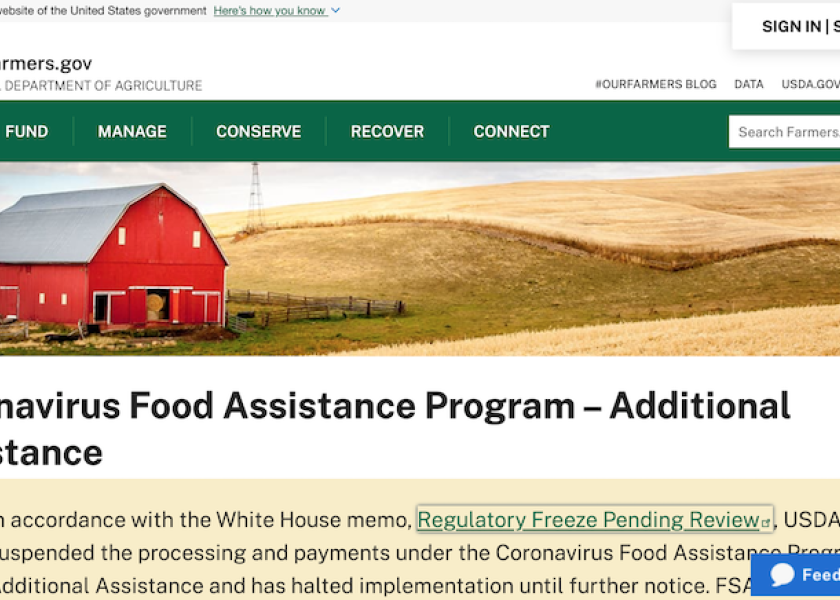USDA Freezes $2.3 Billion Supplemental CFAP

USDA late Wednesday posted notice that $2.3 billion in supplemental Coronavirus Food Assistance Program (CFAP) payments will be temporarily frozen.
“In accordance with the White House memo, Regulatory Freeze Pending Review, USDA has suspended the processing and payments under the Coronavirus Food Assistance Program - Additional Assistance and has halted implementation until further notice. FSA local offices will continue to accept applications during the evaluation period,” said a notice on the USDA CFAP page.
“In the coming days, USDA and the Biden Administration intend to take additional steps to bring relief and support to all parts of food and agriculture during the coronavirus pandemic, including by ensuring producers have access to the capital, risk management tools, disaster assistance, and other federal resources,” the notice continued.
The previous administration had announced the expanded eligibility for the CFAP 1 and 2 programs on Jan. 15, just days before President Joe Biden was to be sworn in. The program expansion was targeted mostly at contract pork and poultry producers and others previously excluded from the relief payments.
As outlined in the notice above, USDA will continue to take applications for the CFAP program, though no checks will be cut while the program is reviewed.
Farm Journal has asked USDA how long that review is expected to take and if there are any changes expected to the supplemental CFAP program as a result of the review. Watch this page for updates.







